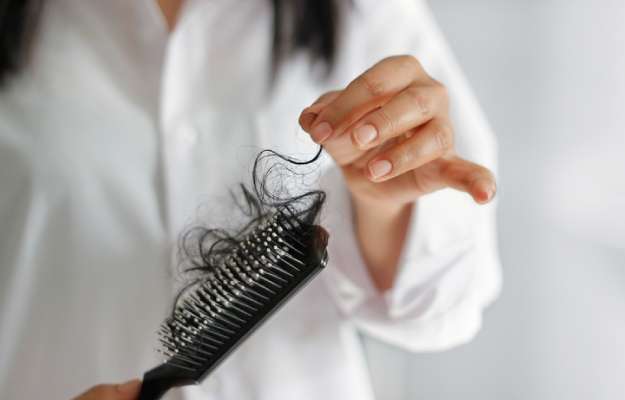As a complex biological machine, the human body needs chemical messengers to deliver signals that tell our cells what to do and when.
Testosterone – widely known as the male hormone – is among those messengers vital to male physiology as it shapes men’s masculine aspects.
But the question is: Do women also have testosterone? And what are the effects of testosterone on women?
RELATED: 5 Facts & Myths About Female Testosterone Replacement Therapy
Why Women Need Testosterone and How It Affects Health
What Is Testosterone, and Do Women Have It?
Testosterone: The “So-called” Male Hormone
Regarding sex hormones, we tend to “polarize” them into those exclusively in men and those that can only be found in women.
However, the human body is not a “binary” system, meaning that some of our chemical products can be found in both genders.
And a common misconception that now deserves a thorough explanation is that: testosterone is not only present in men but also women. So, this “so-called” male hormone is also a vital factor that largely contributes to women’s well-being.
Testosterone in women plays a crucial role in various health aspects, including reproduction, mood and cognition, bone health, and physical development. Contrary to popular belief, this hormone is equally important in both sexes.
Women Have Testosterone at a Lower Level Than Men
The ovaries, adrenal glands, fat cells, and skin cells produce testosterone in women. However, the ovaries and the adrenal glands make most of a woman’s total testosterone, as about half of it comes from these organs.
The healthy testosterone ranges for women are 15 to 70 ng/dL of blood. Yet, these ranges may vary depending on the woman’s health, genetics, and age.
In general, women’s bodies produce 1/10th to 1/20th of the amount of testosterone that men’s bodies do. This lesser amount of testosterone is due to aromatization, a natural chemical reaction in which female testosterone is converted into estrogen.
Women’s testosterone also declines with age. So by the time a woman enters menopause, testosterone may have dropped to about half of its youthful levels. This is why women should pay more attention to their testosterone, even though they have less of it than men.
What Does Testosterone Do for Women?
Testosterone’s effects on women are as broad and profound as on men. This sex hormone determines how a woman’s body operates physically and how the mind thinks and works.
Maintain Sex Drive
Testosterone plays a role in driving desire, fantasy, and sexual thoughts and providing energy for sex in women.
In addition, increasing testosterone levels have been found to increase sexual desire in women with menopause-related low libido. Still, in combination with estrogen, testosterone may be more effective than testosterone alone in increasing sexual desire.
Increase Fertility
Testosterone improves the production of cervical mucus, which promotes fertility, by increasing circulation to the pelvic region.
Testosterone also promotes the formation of follicles, which are structures that hold and release eggs during ovulation. Increased sex drive due to testosterone also has an indirect effect on fertility.
RELATED: The Importance of Testosterone Replacement Therapy in Women Suffering From Sexual Dysfunction
Keep Bones Healthy
Testosterone significantly influences the growth and maintenance of bones in women. It is because this hormone is associated with bone density.
Although the association between testosterone and bone density among women is not as remarkable as in men, the right amount of testosterone promotes women’s bone growth and strength. In contrast, too much or too little can be harmful.
Protect Cognition
Finally, testosterone affects how women maintain cognitive functions, as this hormone has neuroprotective effects.
Women with Alzheimer’s disease tend to have lower testosterone and estrogen levels than healthy women. In contrast, higher testosterone levels are linked to better performance in tasks that require cognition.
RELATED: HRT Could Help Dementia and Alzheimer’s in Women, Studies Show
High Testosterone Levels in Women
What Causes High Testosterone?
Since the ovaries and the adrenal glands produce most of the testosterone in women, any problem with these organs, such as tumor development, may cause testosterone to be released excessively.
Treating the underlying problems with the ovaries and the adrenal glands may help testosterone return to normal levels.
Some common medications for excess testosterone include:
- Glucocorticosteroids
- Metformin
- Oral contraceptives
- Spironolactone
High Testosterone Symptoms
High levels of testosterone (higher than 70 ng/dL) may cause polycystic ovarian syndrome (PCOS), resulting in the following symptoms:
- Irregular menstrual cycle
- Excess hair growth
- Skin problems
- Ovarian cysts
- Infertility
- Miscarriage
Low Testosterone Levels in Women

What Causes Low Testosterone?
Women with ovaries removed to treat or prevent ovarian cancer may suffer from earlier and faster testosterone deficiency. This deficit in testosterone is concerning because testosterone is already declining progressively with age.
For this reason, treating testosterone deficiency as an additional treatment for ovarian cancer after ovary removal surgery is necessary.
Low Testosterone Symptoms
Testosterone levels lower than 15 ng/dL in women may cause:
- Hair loss
- Thinning skin
- Increased risk for bone loss
- Memory and focus issues
- Depression and mood issues
- Decrease in sex drive and fertility
RELATED: Starting & Stopping Hormone Replacement Therapy | Risks & Side Effects
How Can Women Maintain Testosterone?

Diet and Supplementation
Women with low testosterone levels may be able to increase their levels by eating foods like ginger, fatty fish, and some vegetables. Processed, frozen, or prepackaged meals, on the other hand, should be avoided as they can lower testosterone levels.
However, eventually, there is no bad food, only a bad diet.
Diets that include whole foods and provide a healthy balance of fats, carbohydrates, and proteins are the best. Eating a healthy and nutritious diet can help balance all hormone levels in the body and promote long-term health.
Supplementation can also help to correct a deficiency and even increase testosterone levels. For example, magnesium supplements can help restore testosterone levels to normal. Likewise, zinc supplements may also be able to prevent a drop in testosterone levels.
Healthy Lifestyle Changes
A combination of sleep deprivation, a sedentary lifestyle, excess stress and anxiety, and alcohol abuse is the culprit behind the decline in testosterone. Therefore, positive lifestyle modifications are another foundation for reserving testosterone in women.
Importantly, getting rid of stress can be one of the most straightforward approaches to maintaining testosterone levels.
Suppose a woman suffers from stress for a long time. In that case, the cortisol hormone released in response to psychological stress may have a “fight” against testosterone in the bloodstream, reducing blood testosterone levels.
Increasing physical activity and maintaining a healthy body weight can also help to boost testosterone levels. Your testosterone levels rise after exercise, particularly intense training. However, this increase could last only as little as 15 minutes to an hour.
Testosterone Therapy
The ultimate approach to improving testosterone levels in women is taking testosterone replacement therapy. This treatment option is safe, efficient, and scientifically backed to bring testosterone back to optimal levels.
Testosterone replacement therapy uses bioidentical hormone pellets based on human hormones to balance hormone levels in the female body, allowing women to feel younger, have more energy, and regain control of their bodies and minds.
Many women are concerned about testosterone therapy’s risks and side effects. The more testosterone a woman has, the more it is converted into estrogen. And higher estrogen has been linked to an increased risk of breast cancer.
However, testosterone replacement therapy aims to figure out the exact level of testosterone a woman needs and achieve that level. Therefore, this treatment’s risks and side effects are minimized, allowing women to regain hormonal balance.
In conclusion, testosterone is one of the most crucial hormones in the female body. Maintaining testosterone levels is vital in both men and women alike.
Yunique Medical provides FUNCTIONAL MEDICINE for optimized health and performance. We offer customized, scientifically advanced treatments to create a new state of human thriving. Why be ordinary when you can be optimal?
HUMAN 2.0 begins here!
Contact us to schedule your FREE consultation at one of our three locations in Florida – Ocala, Fruitland Park (The Villages), and Daytona.
UP NEXT:

